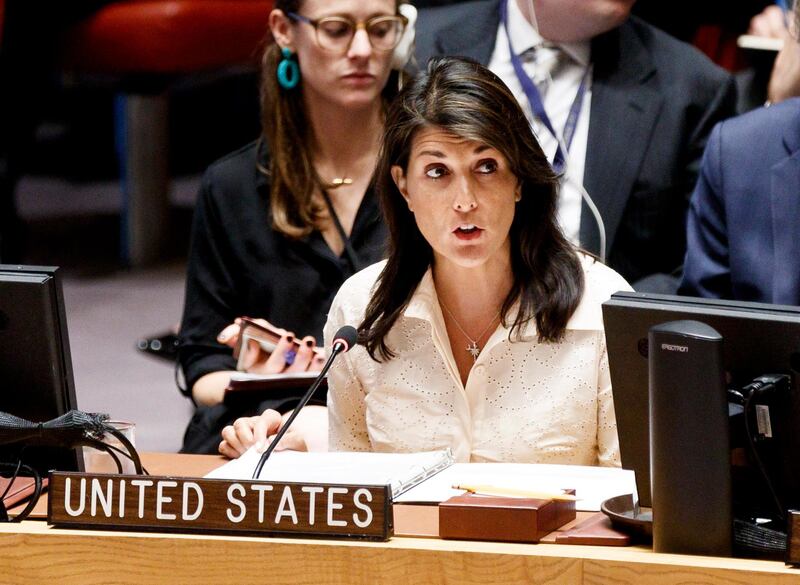The United States urged fellow UN Security Council members on Wednesday to punish Iran for “malign behaviour” in the Middle East, at a meeting on implementation of the 2015 nuclear deal with Tehran.
“When confronted with a country that continually violates this council’s resolutions, it is imperative that we pursue meaningful consequences,” said Jonathan Cohen, the US deputy ambassador to the United Nations.
"That is why we urge members of this council to join us in the imposition of sanctions that target Iran's malign behaviour in the region," he said.
It was the first meeting of the Security Council since US President Donald Trump announced on May 8 that the United States was withdrawing from the nuclear agreement with Tehran.
On May 24, the International Atomic Energy Agency concluded for the 11th time that Tehran had met its commitments.
In his remarks, Mr Cohen once again accused Iran of supplying missiles to the Houthi rebels in Yemen in violation of an international arms embargo.
In a recent report, the UN said that missile components fired at Saudi Arabia had been manufactured in Iran, but that UN officials were unable to determine if they had been delivered before or after the July 2016 imposition of an arms embargo on Yemen.
“Dismantling a nuclear deal that is working would certainly not put us in a better position to discuss other issues,” said EU ambassador to the UN Joao Vale de Almeida, referring to Tehran’s ballistic activities and its influence in the Middle East.
“The collapse of this major achievement would mark a serious step backwards for the region, for the non-proliferation regime but also for our security for all, which would potentially have serious consequences,” said French ambassador Francois Delattre.





